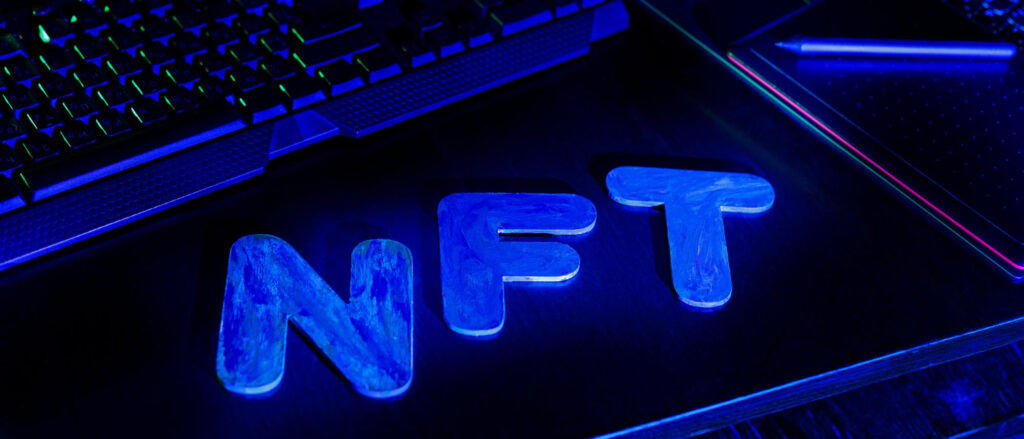2023-1-22 10:35 |
Blockchain gaming is a rapidly growing industry that has the potential to revolutionize the way we play video games.
As more gamers, developers, and publishers embrace blockchain gaming, it is expected that this market will grow from $4.6 billion in 2020 to an estimated $65 billion by 2027.
But when will blockchain gaming go mainstream? Will 2023 be the year of adoption? This article explores these questions and more as it dives into what’s happening in the world of blockchain gaming today.
What is Blockchain Gaming?Blockchain gaming refers to the use of blockchain technology in the creation and distribution of games.
Therefore, blockchain games are built on decentralized networks, allowing users to own their in-game assets and protect them from third parties. And unlike traditional online games which rely on centralized servers controlled by developers, blockchain games offer players more control over their data and in-game assets.
This makes it possible for gamers to trade game items with each other without needing permission from the game developer or relying on a centralized server.
As a result, blockchain gaming is becoming increasingly popular among gamers who want more ownership over their in-game experience and greater security for their investments.
With its unique advantages, blockchain gaming has the potential to transform the world of online gaming – making it safer, fairer, and more rewarding than ever before.
Overview of the Blockchain Gaming MarketThe blockchain gaming industry has had its fair share of struggles in recent years. However, in 2022, the market has begun to show signs of recovery and increased adoption. A recent DappRadar report points to the resilience of the blockchain gaming sector.
Despite the collapse of FTX, November saw blockchain gaming activity surge with an average of 800,875 daily unique active wallets. This is a significant increase from October which had an average of 614,902 daily unique active wallets.
Furthermore, Wax has established itself as one of the leading gaming protocols. With over 340,000 average daily unique active wallets and an ever-growing library of games and applications that use it, Wax is establishing a strong foothold in the gaming industry.
In addition to increased adoption, the blockchain gaming and metaverse industries have been experiencing a surge in investment, with investors pouring more than $534 million into the space.
This influx of capital has enabled companies such as Fenix Games to make a big splash on the scene. The Web3 game publisher recently announced that it had secured $150 million in funding to acquire, invest and distribute blockchain games.
This is an unprecedented move that will no doubt help to further propel the industry forward as well as create new opportunities for developers looking to enter this exciting sector. With such large sums being invested into these projects, there’s no telling how far they may go or what innovations they may bring about.
Obstacles Facing the IndustryOnboarding is one of the biggest factors affecting blockchain games. Blockchain games are still relatively new and users need to be taught how to access and play them. This involves understanding concepts such as wallets, tokens, smart contracts, and more which can be intimidating for new players. Therefore, onboarding becomes a key factor in increasing user adoption and engagement with blockchain games.
Poor gameplay is another issue facing the blockchain gaming industry. Many blockchain-based games are not living up to their potential due to a number of issues. For example, the technology is still relatively new and evolving rapidly, making it difficult for developers to keep up with the changes. Additionally, there are often long waits for transactions to be processed on the blockchain network, leading to delays in game updates or features being released.
Finally, scalability problems can arise when too many players join a single game at once – resulting in slow loading times or even crashes. Despite these challenges though, blockchain gaming has great potential that could be realized if developers continue pushing forward with innovative ideas and solutions.
OutlookDespite some of the issues it currently faces, the future of blockchain gaming looks bright. As more players become aware of its advantages, adoption will continue to rise and the industry should start to see steady growth in 2023 and beyond.
Moreover, with an influx of investment into the space and a slew of exciting new games being released, there is great potential for blockchain gaming to go mainstream this year.
However, it’s still too early to tell if 2023 really will be the breakout year for blockchain gaming – as it will ultimately require one game that has broad appeal in order to truly change the landscape.
The post When Will Blockchain Gaming Go Mainstream? appeared first on NFT News Today. origin »Bitcoin price in Telegram @btc_price_every_hour
Global Gaming (GMNG) на Currencies.ru
|
|


















